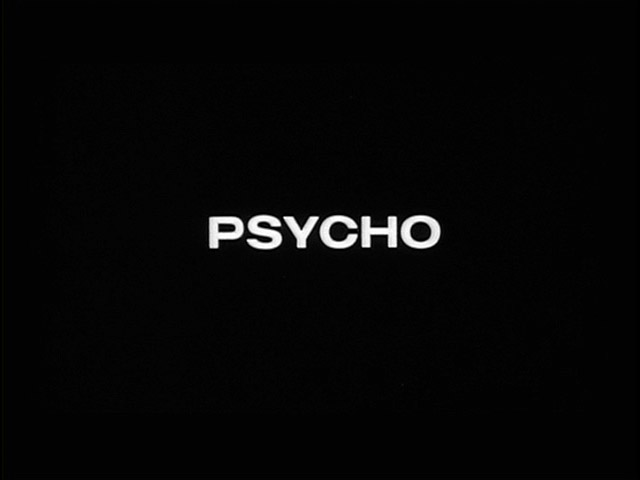
I've already gone on at length about how cheap imitators of Psycho were so prevalent that they created a bad formula for an entire genre of film ("slasher" movies). And pretty much every critic ever seems to have belabored how awful the last ten minutes are, with Dr. Useless-Psychobabble-Exposition coming in and sullying an intelligent story's elegant conclusion. It's not enough to ruin the film, but that's only because the film is so good. Hitchcock consistently underestimated his audiences, I think, and this ending moment is one of the worst cases of it. (Another case is Spellbound: a beautiful drama, with dream sequences directed by Salvador Dalí, that hinges on a lot of overexplained, poorly understood gibberish posturing as psychoanalysis.)
What I haven't noticed really before this watching is that Psycho isn't a horror at all. It's barely even a thriller. It's pretty clearly a mystery film, if you ask me, and one that plays on three levels simultaneously without missing a beat. Check it out: there's dramatic irony because we know far more about what's going on than the various characters do (and I have a feeling Psycho can be read with Norman Bates as a late-appearing protagonist or with Everyone Else as a collective-protagonist and Norman as the antagonist; I'm inclined to see it as the latter). And then there's the twist, when we see "what really happened." In other words, there's level one, the story Lila and Sam and Arbogast and everyone assumes is true, that Norman (or, perhaps Arbogast? or maybe just Marion herself) ran off with the $40,000 and it's only a matter of putting together clues to get on the trail of the money, and Marion (alive or dead). But then there's level two, the story we assume to be true, that the money is meaningless and Norman is a (mostly) decent, sweet guy, who we can root for, who's just protecting a psychotic, murderous mother. But then there's level three, the reveal/twist (I'd say "spoiler," but come on... more people know the end of Psycho than know the end of Citizen Kane), in which Norman's mother has been dead for ten years, and in fact was murdered by Norman himself, and that Norman has taken to becoming his mother to sublimate the guilt of what he's done, thus lording over his own life the way he expects she would (or perhaps did). These three things aren't subplots, they're more like parallel explanations of what's happening: what they think is going on, what we think is going on, and what's actually going on. And all three are juggled masterfully. Up until the reveal, every single one seems reasonable, even the one we know is a wild goose chase for the world's most famous MacGuffin: Marion Crane's stolen money.
Once you know the end of course, there are plenty of clues throughout that this is what's happening. Never once does the movie "cheat" or have a moment that isn't satisfied by the final explanation. But even more than that, it's fun to watch some of the tiny gestures, to watch the evolution from Norman Bates, goofy shut-in (and by the way, I love the shit out of Anthony Perkins here... he may be my pick for greatest performance in a Hitchcock film, though it's a small list) to Norman Bates, sexually confused young man -- and of course it's the latter that triggers "Mother." When Marion comes in, all is well. When she says she's from Los Angeles, something about this triggers Norman, and he gives her the room closest to his office. Little moments like this, ways in which she makes herself available to him (gestures meant only as friendly, confusing and enticing to a reclusive man who longs to leave behind crazytown but knows he cannot) draw him to her. You get the distinct impression it's not a random crime, and that Norman doesn't kill every passerby (in fact we learn he's only killed twice before, both young ladies). This is a crime of passion spurned on by the feminine wiles of a nice young lady with a bit of the flirt in her and an obvious lie in her backstory. None of this is said, even in that unbearable info-dump denouement. It just is. It's all there to see, so (like everything else in the denouement) it doesn't need to be said at all.
The characters and the story are brilliant. The horror moments are strong, but I still say this is more of a murder mystery with a dose of thriller, and not really a horror at all. But considering how Hitch sold it to audiences, and the ripples it's created in today's horror movie... uh... pond (there's a metaphor that collapsed, ha!), it's not surprising it's thought of as a horror film. I guess that's not surprising, as a lot of the best films of any genre are the ones that come from elsewhere and bring with them a novel perspective and unique elements. The cinematic equivalent of genetic diversity, say.

No comments:
Post a Comment